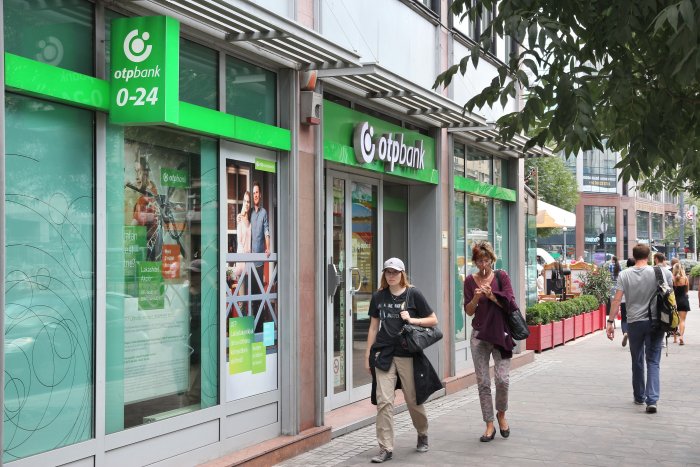OTP Earnings Climb in 2023

Tupungato/Shutterstock.com
Consolidated fourth-quarter after-tax profit of OTP Bank, Hungary's biggest commercial lender, was muted, as acquisition and divestment costs weighed, but full-year profit soared on an improved operating result and lower risk costs, an earnings report released ahead of the opening bell on Friday shows.
Fourth-quarter after-tax profit increased 15% year-on-year to HUF 132.6 bln.
OTP booked negative HUF 59.5 bln from the sale of its Romanian unit during the quarter, even though the agreement on the transaction was concluded in February 2024. An adjustment of badwill related to its recently acquired Uzbek unit, Ipoteka Bank, had a negative P+L impact of HUF 17.8 bln.
At the Uzbek unit, OTP said management expected normalizing risk costs, an improved operating result and a stable or increasing market share.
For the full year, OTP's after-tax profit jumped 185% to HUF 990.5 bln.
Net interest income rose 33% to HUF 1.46 tln and net revenue from commissions and fees increased 20% to HUF 478.1 bln.
Risk costs fell 78% to HUF 38.5 bln.
ROE improved by 16.2 pp to 27.2%.
Earnings per share came to HUF 3,693.
OTP had total assets of HUF 39.609 tln at the end of December, up 21% from 12 months earlier.
Gross stock of client loans increased 19% to HUF 22.466 tln. Stock of client deposits rose 21% to HUF 29.428 tln.
All Units Except Ipoteka Bank Profitable
Adjusted after-tax profit of OTP's business in Hungary increased 18% to HUF 302.9 bln.
Adjusted after-tax profit of DSK Group, the Bulgarian unit, climbed 68% to HUF 202 bln.
Profit of the Slovenian business jumped 440% to HUF 128.7 bln, lifted by the acquisition of Nova KBM which was consolidated from February.
Ipoteka Bank, which OTP acquired in June, had a HUF 21.9 bln loss. It was OTP's only unprofitable unit during the year.
OTP booked adjusted after-tax profit of HUF 95.7 bln at its business in Russia and HUF 45.2 bln at its unit in Ukraine.
In a disclaimer regarding war-related risks, OTP said the precise consequences of the war in Ukraine and international sanctions were difficult to estimate at present, adding that it "continues to monitor the situation closely".
OTP noted that the impact of a deconsolidation of the Russian business and write-down of intragroup exposure would cut its CET1 ratio by 11 bp, while the negative effect of a deconsolidation in Ukraine would be 2 bp.
Guidance Points to Possible Pickup in Credit Demand
In guidance for 2024, OTP's management said an expected improvement in GDP growth, disinflation and a declining interest rate environment could have a positive impact on credit demand and portfolio quality.
FX-adjusted organic performing loan volume growth may be higher than in 2023, the consolidated net interest margin may be similar to 2023, consolidated cost-to-income ratio may be around 45% and the portfolio risk profile may be similar to 2023, the management said. Leverage is expected to decline, thus ROE may be lower than in 2023, they added.
The final decision on a dividend proposal will be made at a board meeting on March 20 and published on April 4, OTP said.
"The currently presented financial statements include HUF 150 bln (HUF 535/share) dividend payments, based on the latest decision of the Management Committee," it added.
SUPPORT THE BUDAPEST BUSINESS JOURNAL
Producing journalism that is worthy of the name is a costly business. For 27 years, the publishers, editors and reporters of the Budapest Business Journal have striven to bring you business news that works, information that you can trust, that is factual, accurate and presented without fear or favor.
Newspaper organizations across the globe have struggled to find a business model that allows them to continue to excel, without compromising their ability to perform. Most recently, some have experimented with the idea of involving their most important stakeholders, their readers.
We would like to offer that same opportunity to our readers. We would like to invite you to help us deliver the quality business journalism you require. Hit our Support the BBJ button and you can choose the how much and how often you send us your contributions.








